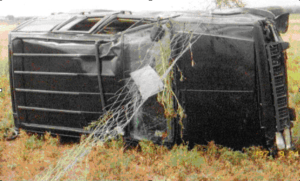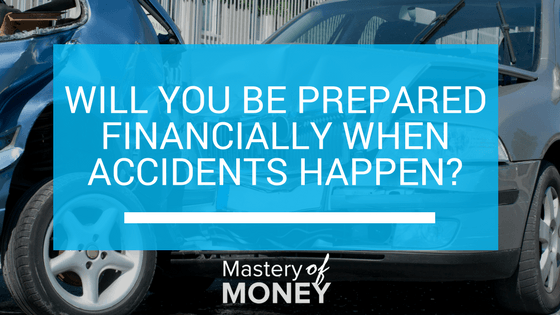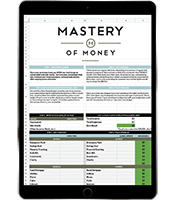“Are you alright?” my friend Clint asked me with a panicked look in his eye.
I looked down at my hands, turned them to look at my palms, and saw no blood. After moving my legs and a quick check for pain I replied, “I’m okay. Are you okay?”
“Yes. We have to get out of here. Turn the car off.”
Looking back, I’m fairly certain I was in shock, as I put the Jeep in park.
“Adam. TURN THE CAR OFF.”
He was already unbuckling his seat belt and attempting to crawl into the back seat of the Jeep Grand Cherokee to crawl out the driver’s side window which had blown out and was facing straight towards the sky.
Clint was on the ground pacing around his Jeep before I came to the realization that I’d better get out. Too many vehicle crashes in movie scenes, I suppose, but all I could imagine was this thing going up in flames within seconds.
“Adam, get out. Seriously man, GET OUT.”

“Let’s just push it over and keep going.”
I, too, got unbuckled and managed to drop my body down to where Clint had just been, then crawled into the backseat and out the driver’s side window.
“Let’s just push it over and see if it will drive,” Clint said as we surveyed the damage. Now it appeared HE was in shock.
“I’m pretty sure that’s transmission fluid leaking from the hood and with four flat tires and no windows, we’re not going anywhere,” I quipped back, then adding softly, “I am so sorry, dude. I just wrecked your baby. I am so… sorry.”
Clint was, and always has been, a great visionary leader. He grabbed me by the shoulders, looked me in the eye, and said, “I’d pay $14,000 for our lives anyday” then gave me a We Just Dodged Death hug.
The accident happened in what seemed like an instant but was probably a good minute in the making. We were cruising along Interstate 80 towards Denver, about to embark on an almost two month long journey to Australia, New Zealand, Fiji and Hawaii. Along the way to Los Angeles, where we were flying out, our stops were to be Ft. Collins, Denver, Phoenix, San Diego and finally LAX.
In terms of how the accident happened, the answer could very well be, innocently. As Clint journaled and I took my turn at the wheel for the day, I decided a different music selection was needed so I reached down to the floorboards to grab the CD case. Apparently when I did, my hand pulled the wheel to the right and when I looked up we were headed straight for a mile-marker post. I did a good job of steering around the post, and ended up bouncing along the ditch next to the interstate (still going 75mph). Somehow I managed to get back onto the roadway, avoiding all signs in the meantime, but felt the backend of the Jeep begin to fishtail. I overcorrected to the right and the Jeep did a 90 degree turn straight towards the ditch, taking us down the ditch and back up the other side, through a county fence, jumping a dirt road, and rolling end over end four times taking nearly 90 feet of county fence with us.
That was 20 years ago.
At the time, I had neither a pot to piss in nor a window to throw it out of. Never once did I think about what would have happened if I had been paralyzed, had a limb pulled off, or any other variety of could of’s.
In the 20 years since, I’ve totaled two other vehicles. One about 5 years after the now-infamous Nebraska I-80 rollover where I was rear-ended by someone just not paying attention, and the other more recently when I separated a deer’s legs from it’s body as it careened over the hood of my SUV.
In the second and third accidents, my standing in life had risen a bit. I was married, had a house, had kids, had financial responsibilities that my 22 year old self couldn’t fathom. The thoughts DID cross my mind after those accidents — What if I had been incapacitated? What if I couldn’t work for months or years on end? How would my life continue on “as normal” if something unexpected happened.
It wasn’t until an insurance agent friend of mine prodded me with the question, “have you insured your ability to make money?” that I even considered disability insurance. That was about 12 years ago and I’ve carried disability insurance ever since.
He suggested I think about it this way:
- We insure our vehicles in case something goes wrong
- We insure our homes for coverage in case of fire, theft, someone getting hurt, etc.
- Why wouldn’t we insure our ability to provide for our family?
- Why not carry insurance on our ability to live life normally in case of an accident?
You more than likely have some form of disability insurance through your job if you are a W2 employee. Employers typically offer a limited amount of short term and long term disability insurance as part of your employment. If you want to increase the coverage amount, you can typically opt for more at a very reasonable rate. These are usually priced as 1x your salary, 2x your salary, or as a monthly amount you’d receive if injured for any length of time.
My particular policy is a Long-Term Disability policy through Principal Financial Group. I believe the cost is around $1300 per year and should I become unable to do the work that is listed on my policy (Professional Speaker/Consultant), after 6 months of not working the policy then kicks in and pays $3600 per month for the rest of my life. Not a princely sum to live on for the rest of my life, but the theory was my wife would probably be working if I couldn’t and we live pretty frugally as it is so we should be able to stretch the dollars.
For self-employed folks, having a disability insurance policy like this is critical.
This post was prompted by a friend of mine who recently had a roll-over accident and luckily walked away with just some bumps and bruises. Her email to me started with “The accident got me thinking about what would have happened if…” and continued on to say her business is fairly self-sufficient, but she’s still needed to do some things for it to work successfully. She wondered if I was carrying any sort of disability policy and what she should look into. (Thanks for the blogpost idea, Jocelyn!)
Where else to turn in case of an accident
There are some obvious fall-back mechanisms if you’re not in a position to pay for a long-term disability policy:
An emergency fund: How much should be in your emergency fund is the subject of great debate online. For the longest time, my wife and I had about six months worth of monthly expenses in a money market account just in case. The rates on money markets when we started building our emergency reserves was significantly higher than it is today. Now, we keep about three months worth of liquid assets, simply to help my wife sleep better at night. I think considering HOW you make money and how easy it is for you to make money should be considerations, as well as what other things you have in place in case of emergencies.
A line of credit, PLOC or HELOC: A line of credit is essentially a pre-approved open-ended loan. Meaning you can pull from it when you need it and when you pay it back there isn’t a specific timeframe to pay it off. Most commonly used would be a HELOC or Home Equity Line of Credit. This is an open-ended, simple interest loan that is tied to the equity of your home. Think of it like a second mortgage, but way more fluid than your typical closed-end 30 year fixed mortgage. Money can flow in and out of it like a two-way street where a 30 year fixed mortgage is more like a one-way street. A Personal Line of Credit or P-LOC can be obtained through your local bank or credit union. These usually carry a slightly higher interest rate as there is usually nothing tied as collateral to the loan itself.
Credit cards: This would only be used as a last means of financial defense. Whenever I hear of people living on credit cards due to personal situations like an accident or job loss, I’m immediately nervous for them. Credit cards are a tool, and a very valuable one at that, but by and large should NOT be used for monthly living expenses if they’re not paid off every month. My good friend and co-author Chad Carden once told me that spending money on credit cards is using IFCOME not INCOME. As in, IF I get paid on Friday, I might pay off my credit cards. Too many people relying on IFCOME in our country has created a nearly $1T credit card debt situation. Please line up other means of emergency funds and/or lines of credit in anticipation of an accident type situation. Credit cards are a very last means of financial defense.
Action To Take:
- If employed, check with your HR team about what your disability insurance coverage looks like, how much you’re covered for, and what it would cost to increase the coverage to an expense-appropriate amount. Have your spouse do the same.
- If self-employed, connect with a local agent that could help you price your disability policy and get it in effect.
- Identify with your spouse or significant other how much is needed in emergency savings to feel safe and secure at all times. Read this to have the discussion.
- Establish a HELOC or PLOC with your local bank or credit union. Read this to find out why.
And last but certainly not least, keep your eyes on the road… ALWAYS. Put the phone in your purse, your bag, your console or glovebox. While you may not be able to eliminate every hazard on the road, you can definitely eliminate yourself as one by focusing on the task at hand!




